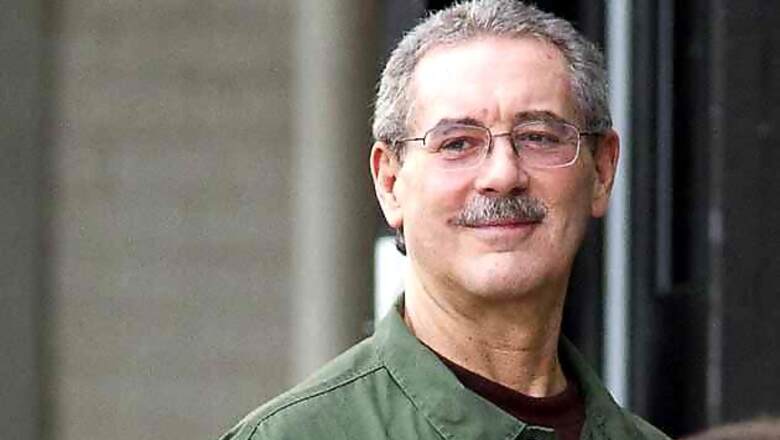
views
Houston: Former jet-setting Texas tycoon R Allen Stanford had plenty of things to say Thursday before a federal judge sentenced him to 110 years in prison for bilking investors out of more than $7 billion over two decades.
An apology was not one of them.
In a defiant, rambling statement that lasted more than 40 minutes, Stanford told the court about the injuries he suffered during a prison fight; criticised the government for its "gestapo tactics" when his companies were put in receivership and their assets sold off to pay back investors; described his financial empire as a victim of the 2008 credit collapse; and recalled riding horses with former president George W Bush.
"I am and will always be at peace with the way I conducted myself in business," he said before the judge handed down the sentence.
Prosecutors said Stanford, 62, used the money from investors who bought certificates of deposit, or CDs, from his bank on the Caribbean island nation of Antigua to fund a string of failed businesses, bribe regulators and pay for a lavish lifestyle that included yachts, a fleet of private jets and sponsorship of cricket tournaments. The one-time billionaire was convicted in March on 13 of 14 fraud-related counts in one of the largest Ponzi schemes in US history.
Houston retiree Sandra Dorrell, who lost over $1 million in the fraud, said Stanford's statement to the court shows the financier cares only about himself and will never admit any wrongdoing.
"It would have been really nice if he had turned around and said, 'I am sorry,' to the victims," said Dorrell, 59, adding that the sentence handed down by U.S. District Judge David Hittner was "very well-deserved".
Prosecutors had asked that Stanford be sentenced to 230 years in prison, the maximum sentence possible. Stanford's attorneys had asked for a maximum of 41 months, a sentence he could have completed within about five months because he has been jailed since his arrest in June 2009.
Stanford's convictions on conspiracy, wire and mail fraud charges followed a seven-week trial.
During Thursday's hearing, Stanford remained defiant, insisting his business empire was legitimate and he "worked tirelessly and honestly."
"I did not run a Ponzi scheme. I didn't defraud anybody," Stanford said.
Prosecutor William Stellmach chastised Stanford for his lack of remorse for defrauding thousands of people of their life savings and preventing them from being able to send their kids to college or to get needed medical treatment.
"To the bitter end, he was a con man and a coward," Stellmach told the court.
Hittner allowed two people to speak on behalf of the victims during the sentencing hearing.
Angela Shaw, a Dallas-area woman who founded the Stanford Victims Coalition after three generations of her family lost $4.5 million in the fraud, said the financier's "heinous crime" has taken a "staggering toll on victims around the world."
At the end of his statement, Jaime Escalona, a Venezuelan who lost $1.5 million and founded the Coalition of Latin American Stanford Victims, turned to face Stanford and said, "You deserve what's coming to you. You are a dirty rotten scoundrel."
Stanford was once considered one of the richest men in the U.S., with an estimated net worth of more than $2 billion. His financial empire stretched from the US to Latin America and the Caribbean. But after his arrest, all of his assets were seized and he had to rely on court-appointed attorneys to defend him.
Defense attorneys portrayed Stanford as a visionary entrepreneur who made money for investors and conducted legitimate business deals. They accused the prosecution's star witness - James M Davis, the former chief financial officer for Stanford's various companies - of being behind the fraud and tried to discredit him by calling him a liar and tax cheat.
Prosecutors had wanted Stanford to get a longer prison sentence than the 150-year term Bernard Madoff received for orchestrating the largest pyramid scheme in history. Madoff's name was often mentioned during Thursday's sentencing, with Stellmach insisting Stanford's crimes were worse because he kept most of the fraudulent proceeds for himself, bribed regulators and targeted middle-class investors. Defense attorney Ali Fazel said that unlike Madoff, Stanford had legitimate businesses.
Prosecutors declined to comment after the sentencing. Fazel said he was disappointed.
"It's a harsh punishment. It's tough on him," Fazel said. "He feels like he didn't do anything."
In handing down the sentence, Hittner called it "one of the most egregious frauds ever presented to a trial jury in federal court."
Anthony Sabino, a law professor at St. John's University in New York City, said Hittner sent a powerful message with Stanford's sentence.
"Clearly, the judge was moved by the scope of Stanford's crimes and the number of people he harmed and how much harm he did," he said.
Hittner also ordered Stanford to forfeit $5.9 billion, but that was mostly symbolic because Stanford is penniless.
The jury that convicted Stanford also cleared the way for US. authorities to go after about $330 million in stolen investor funds sitting in the financier's frozen foreign bank accounts in Canada, England and Switzerland.
But due to legal wrangling, it could be years before the more than 21,000 investors recover anything, and whatever they ultimately get will only be a fraction of what they lost.
Three other former Stanford executives are scheduled for trial in September. A former Antiguan financial regulator was indicted and awaits extradition to the US.




















Comments
0 comment